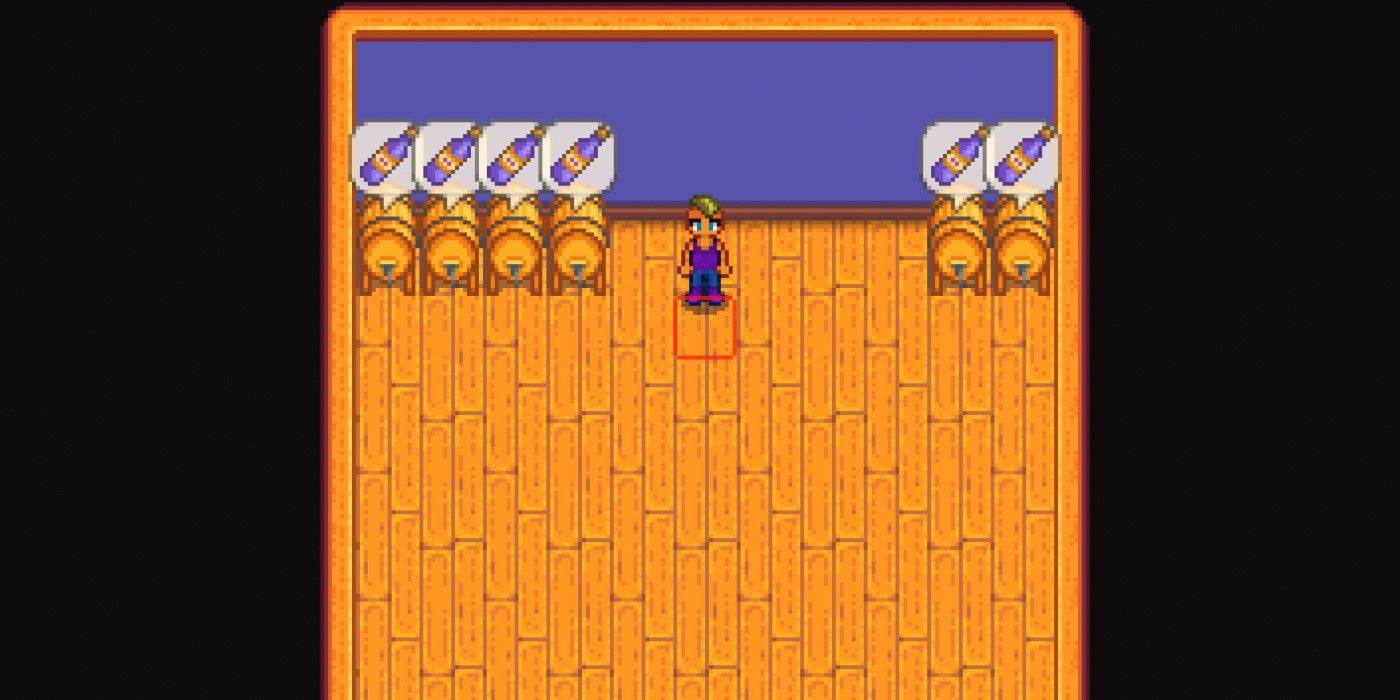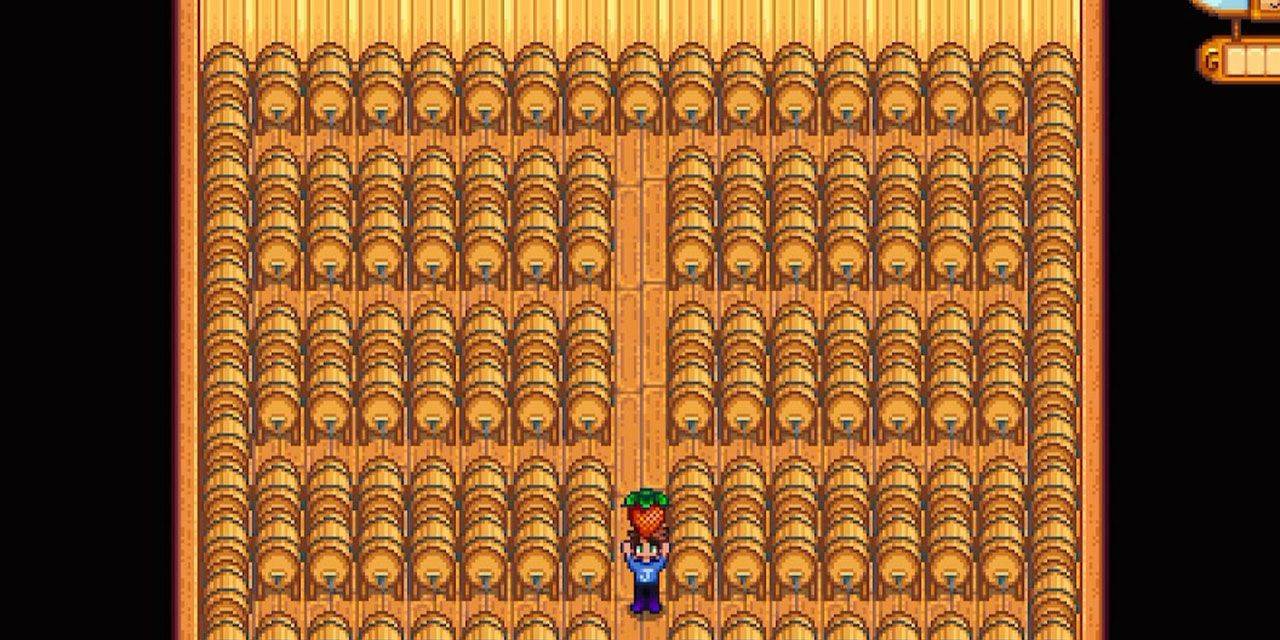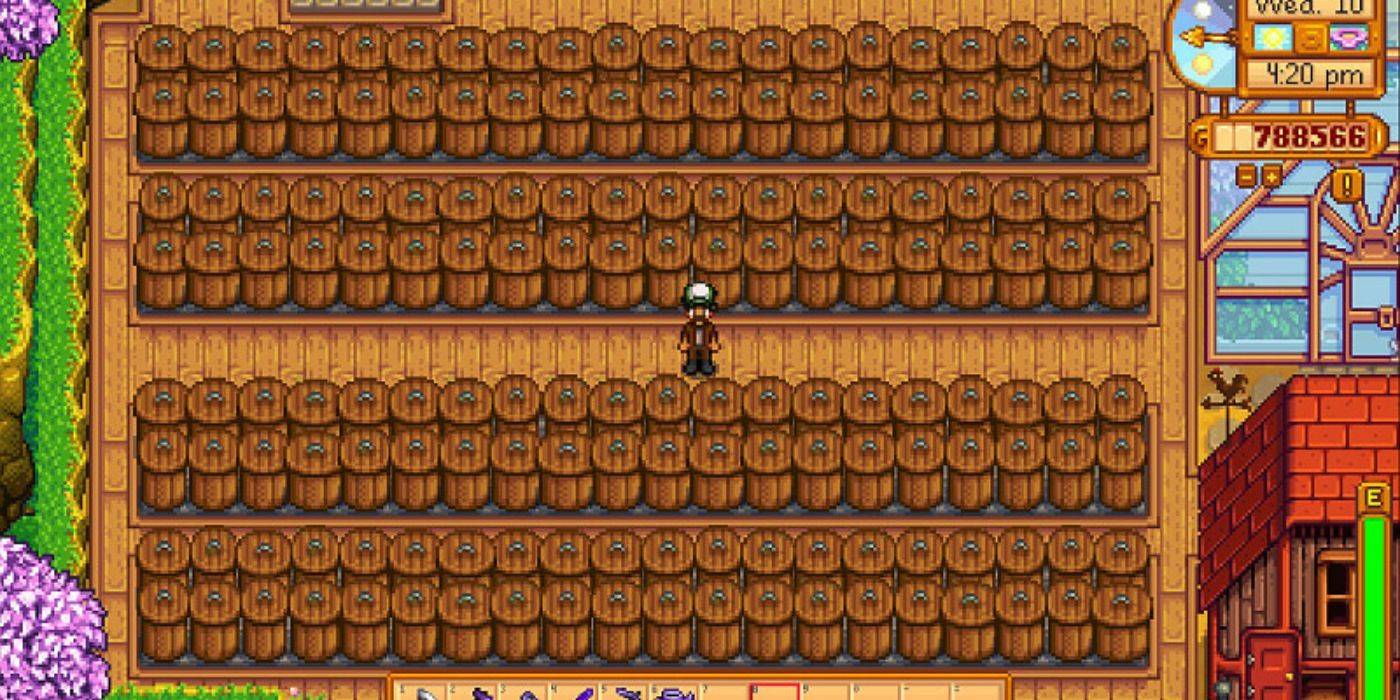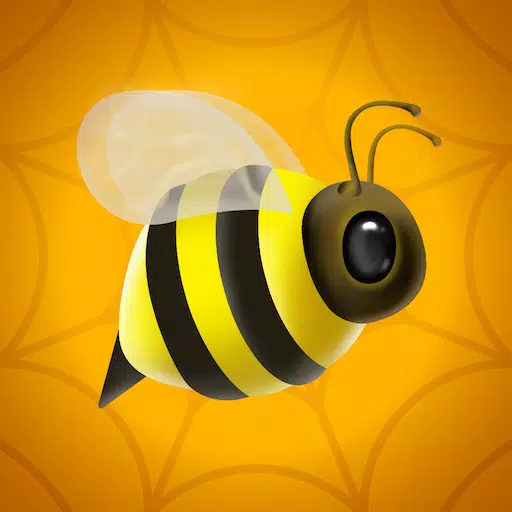Stardew Valley is a game that rewards creativity, patience, and smart resource management. While farming is the core of gameplay, turning raw crops into artisan goods is where players can truly maximize their profits and efficiency. Two of the most essential tools for this are  Kegs and
Kegs and  Preserves Jars — both allow you to transform your harvest into high-value products, but they do so in different ways. Understanding which one is better suited for your farm setup can make all the difference when it comes to profitability and time management.
Preserves Jars — both allow you to transform your harvest into high-value products, but they do so in different ways. Understanding which one is better suited for your farm setup can make all the difference when it comes to profitability and time management.
Thanks to the 1.6 update, more items can now be used in these machines. Forageables like Leeks, Spring Onions, Hazelnuts, and Winter Roots can now be turned into Pickles or Juice, giving players even more options to boost their income without relying solely on traditional crops.
Basics of Kegs and Preserves Jars
 Both Kegs and Preserves Jars are valuable additions to any farm layout, especially if you're pursuing the Artisan profession. This profession increases the sell price of all artisan goods by 40%, making both machines even more lucrative. However, the quality of the item placed in either machine doesn’t affect the final product's value, so it’s best to use lower-quality produce here to avoid wasting higher-tier yields.
Both Kegs and Preserves Jars are valuable additions to any farm layout, especially if you're pursuing the Artisan profession. This profession increases the sell price of all artisan goods by 40%, making both machines even more lucrative. However, the quality of the item placed in either machine doesn’t affect the final product's value, so it’s best to use lower-quality produce here to avoid wasting higher-tier yields.
Preserves Jars
Preserves Jars are perfect for creating canned goods such as:
 Jelly
Jelly Pickles
Pickles Aged Roe
Aged Roe Caviar
Caviar
You can obtain Preserves Jars through Community Center bundles, the Prize Machine, or craft them yourself at Farming Level 4 using:
- 50 Wood
- 40 Stone
- 8 Coal
| Item Placed In Jar | Product | Base Sell Price |
|---|---|---|
| Any fruit | [fruit name] Jelly | 2 x [base fruit price] + 50 |
| Any vegetable Any Mushroom with positive energy (e.g., Morel, Chanterelle) Any Forage item with positive energy (e.g., Cave Carrot, Leek) | Pickled [item name] | 2 x [base item price] + 50 |
| Roe from any fish except Sturgeon | Aged [fish name] Roe | 2 x [roe price] |
| Sturgeon roe | Caviar | 2 x [roe price] |
Kegs
Kegs allow you to ferment beverages such as Wine, Beer, Mead, and Coffee, along with non-alcoholic drinks like Juice and Green Tea. These can also be aged in Casks for increased value over time. You can earn Kegs via Artisan or Brewer's Bundles, win them from the Prize Machine, or craft them at Farming Level 8 using:
- 30 Wood
- 1 Copper Bar
- 1 Iron Bar
- 1 Oak Resin
| Item Placed In Keg | Product | Base Sell Price |
|---|---|---|
| Any fruit | [fruit name] Wine | 3 x [base fruit price] |
| Any vegetable except Hops or Wheat Any Forage item with positive energy value, excluding Mushrooms | [item name] Juice | 2.25 x [base item price] |
 Hops Hops | Pale Ale | 300g |
 Wheat Wheat | Beer | 200g |
 Honey Honey | Mead | 200g |
 Tea Leaves Tea Leaves | Green Tea | 100g |
 Coffee Bean (5) Coffee Bean (5) | Coffee | 150g |
 Rice Rice | Vinegar | 100g |
Kegs or Preserves Jars: Which Is Better?
Pros & Cons of Kegs
 Kegs generally offer higher profit margins, especially when producing Wine or Beer. Alcoholic beverages can be further aged in Casks, increasing their value significantly. Iridium-quality products sell for double the base price, making this an ideal long-term investment.
Kegs generally offer higher profit margins, especially when producing Wine or Beer. Alcoholic beverages can be further aged in Casks, increasing their value significantly. Iridium-quality products sell for double the base price, making this an ideal long-term investment.
However, Kegs are costlier to produce in large quantities due to the need for metal bars and Oak Resin. They also take longer to complete their process, and aging in Casks requires upgrading your farmhouse, which costs 100,000g. While experienced players may find this manageable, beginners might struggle with the initial investment and space requirements.
Pros & Cons of Preserves Jars
 Preserves Jars are much easier to craft and require only basic materials. They are excellent for early-game profit generation and are ideal for processing low-value, fast-growing crops like Blueberries. Their quicker production cycle means they can sometimes match the profitability of Kegs, especially for cheaper ingredients.
Preserves Jars are much easier to craft and require only basic materials. They are excellent for early-game profit generation and are ideal for processing low-value, fast-growing crops like Blueberries. Their quicker production cycle means they can sometimes match the profitability of Kegs, especially for cheaper ingredients.
The downside is that their products, like Jelly and Pickles, tend to have lower selling prices compared to Keg outputs. However, some items—like Roe—can only be processed in Preserves J































